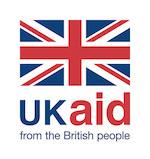Access to a steady source of income is one of the key concerns for displaced populations in both encampment and urban settings. Resilience and livelihood programs are essential in building a meaningful life for refugees.
Community Technology Empowerment Network (CTEN) is a refugee-founded and led organisation, which began in 2016 as community-based initiative in Rhino Camp refugee settlement West Nile region of Uganda.
CTENs mission is to give community knowledge in digital technology for purposes of understanding and eventually building digital skills for employability, resulting in livelihoods resilience.
Having conducted research in 2016, which highlighted that employability is a great challenge faced by refugees, caused by lack of relevant skills to either start a business or achieve gainful employment; CTEN looked to a digital solution that could then address the skills and information gap.
CTEN have launched The Refugee Host Population Empowerment (ReHOPE) Bridge Project. The project focus is digital literacy for refugee and host communities, which aims to create employment opportunities to enable livelihoods resilience for refugees and the host community.
The training curriculum is developed with the specific intension of teaching courses that makes it possible for the participants to be employable and self-reliant. Courses include Computer Repair and Maintenance, Computer Graphics Design, Film Production, Data Collection and Analysis, Digital (Mobile and Computer) Literacy and Numeracy, and Entrepreneurship. The courses are taught in the community connectivity centres that have been set up by Mercy Corps and CTEN in settlements in Arua, Yumbe and Kiryandongo districts of Uganda.
In January 2020, 0ver 600 students graduated from the project and some have already found employment with various NGOS and the Government of Uganda.
Peter Batali, CTEN Executive Director and Founder, says CTEN wants to prove that technology can positively create change in individuals and communities. Peter also highlights the need to involve refugees themselves in the design of solutions to address challenges that affect them.
While there are still challenges faced in completing the course, such as shared computers, gender-specific challenges, such as lower female enrolment rates and, long distances travelled to the community centres, it is clear that CTEN is on the right path to providing relevant digital skills to refugee and host communities with the final aim of achieving employability and sustainable livelihoods.


